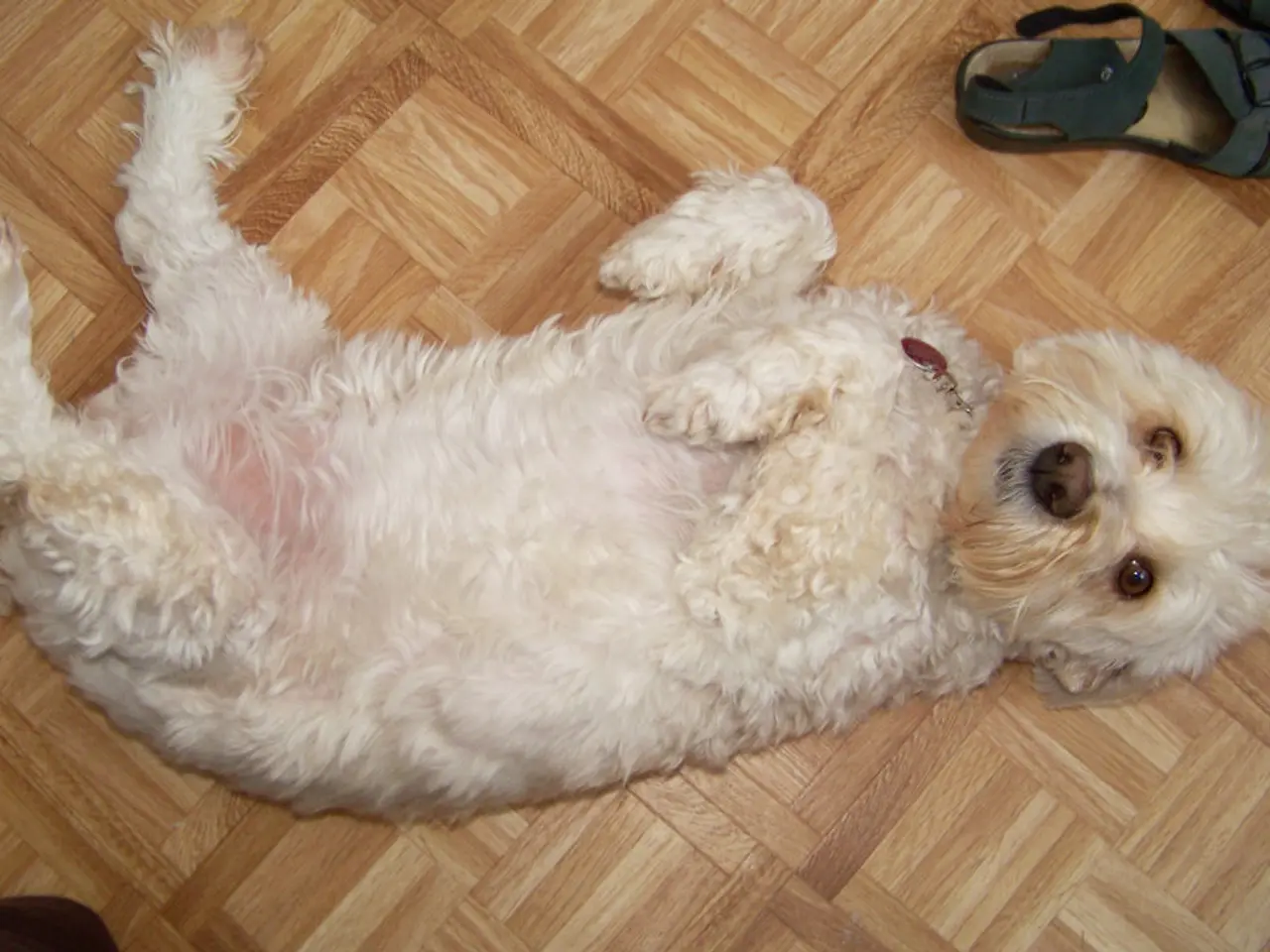Uncovered Risks of Soft Bowel Movements in Canines
Loose stools, often referred to as diarrhea, are a common issue in dogs and can be caused by a variety of factors. Recognising these causes and implementing preventive measures can help maintain your dog's digestive health.
## Common Causes of Loose Stool in Dogs
One of the most frequent causes of diarrhea is sudden changes in a dog's diet or food intolerances. Abrupt introduction of new foods can upset a dog's digestive system, and sensitivities to certain ingredients can also be problematic. Dogs often eat things they shouldn't, such as spoiled food, trash, or foreign objects, which can disrupt the digestive tract and cause loose stools.
Intestinal parasites like hookworms, roundworms, whipworms, tapeworms, giardia, and coccidia are common causes of diarrhea in dogs, especially in puppies. Overuse of medications or exposure to chemical dewormers and flea/tick preventatives can irritate the gut and lead to loose stools. Stress, whether it's separation anxiety or sudden changes in environment, can also cause digestive upset in dogs.
Imbalance or depletion of gut flora, often due to poor diet or antibiotic use, can result in ongoing gut health issues. Leaky gut syndrome, caused by inflammation and microbiome disruption, is also implicated in chronic loose stools. Bacterial, viral, and other infections, as well as diseases like inflammatory bowel disease, pancreatitis, liver disease, and some cancers, can cause diarrhea. Exposure to pesticides, heavy metals, or contaminated water can also contribute to digestive issues.
## Prevention Strategies
Preventing loose stools involves a combination of careful diet management, environmental control, and regular health checks. Always transition your dog to new foods slowly, over several days, to allow their digestive system to adjust. Prevent access to spoiled food, trash, and indigestible objects by using secure bins and supervising outdoor activities.
Follow a regular deworming schedule as recommended by your veterinarian, especially for puppies and dogs with outdoor exposure. Minimise sudden changes in environment and routine, and address anxiety with training, environmental enrichment, or veterinary advice. Use antibiotics and other medications only as prescribed by a veterinarian, and discuss alternative flea and tick preventatives if sensitivities are suspected.
Consider probiotics or supplements to maintain a healthy gut microbiome, particularly after antibiotic use or during dietary transitions. Ensure your dog’s living environment is free of toxic chemicals and has access to clean, uncontaminated water.
By addressing these factors, you can help prevent loose stools and support your dog’s overall digestive health. If diarrhea persists or is accompanied by other symptoms, consult your veterinarian for a thorough evaluation and targeted treatment.
Pet insurance can provide financial support for unexpected veterinary bills related to pet health issues, including digestive problems that might lead to loose stools. Understanding the causes and implementing prevention strategies for pet health and mental-wellness, such as diet management, environmental control, and regular health checks, can help maintain a dog's overall health-and-wellness.




